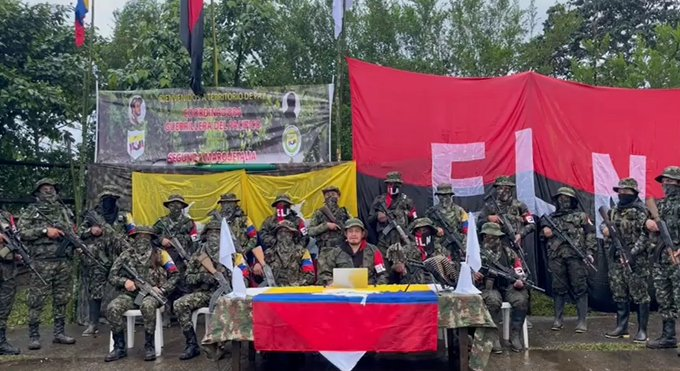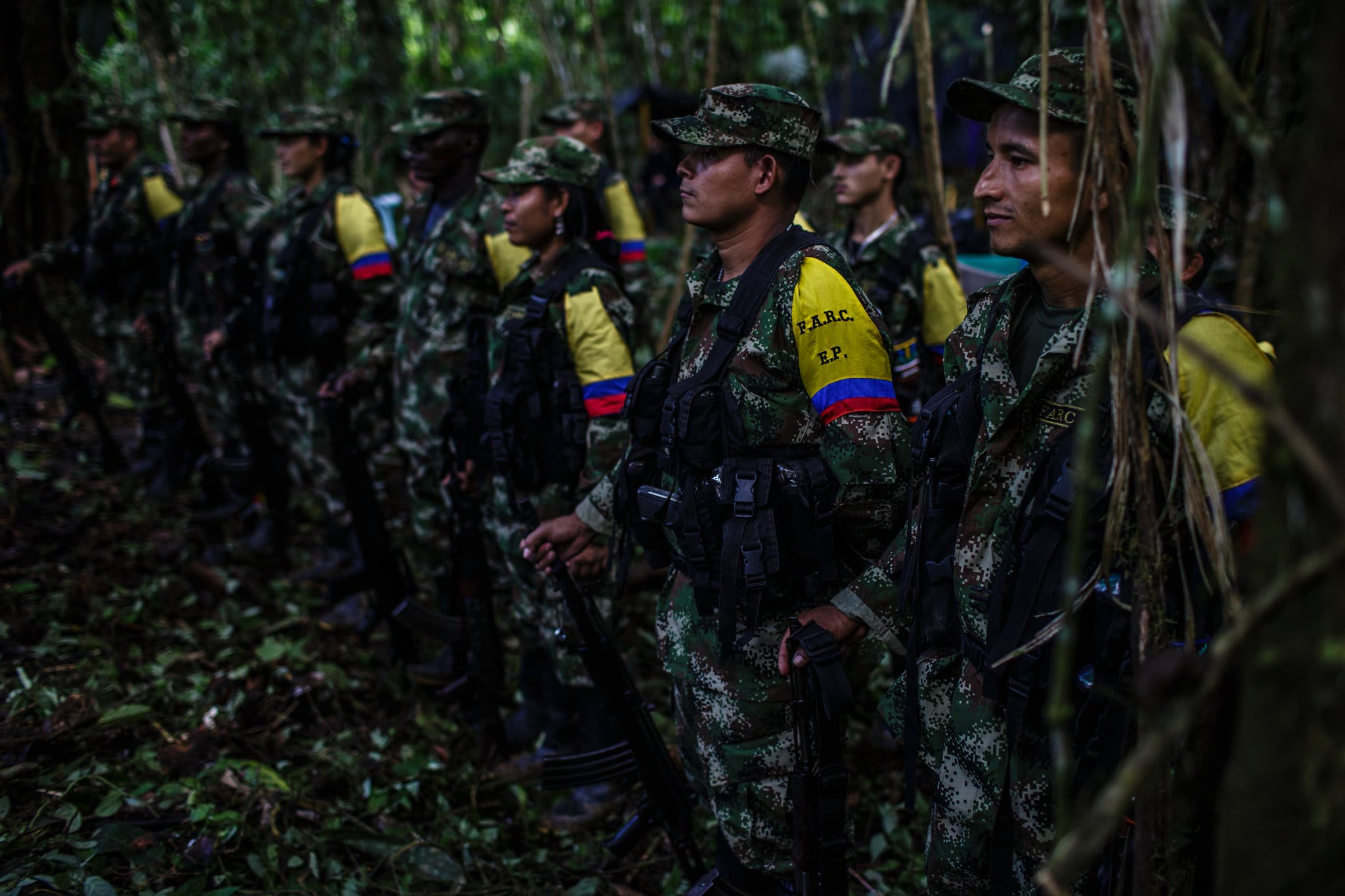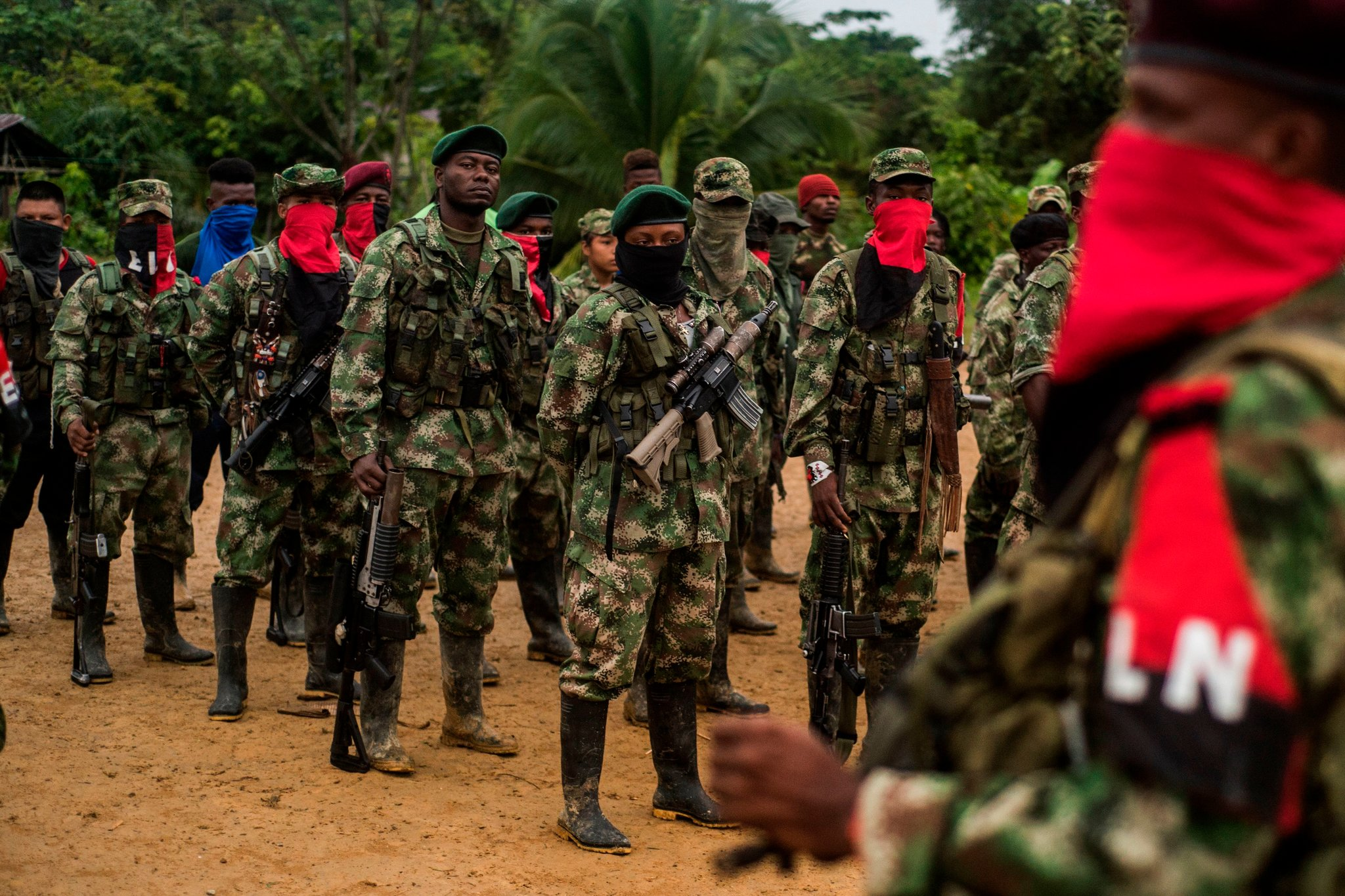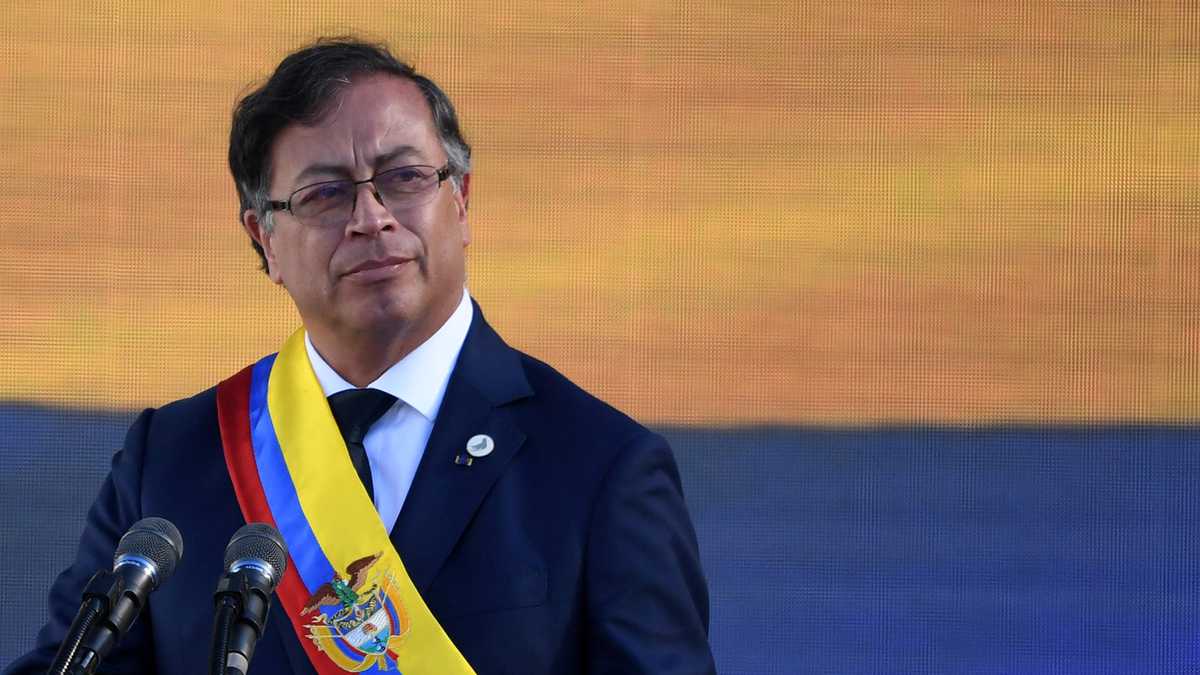Colombia’s National Liberation Army (ELN), a leftist guerrilla group that has fought in an armed conflict with the government since 1964, announced on Thursday that the group would suspend peace talks with the government due to the government negotiating with a portion of the organization.
The group, however, stated they would still attend an extraordinary meeting, which is scheduled for Friday.
Troubled Negotiations:
This announcement follows recent upsets regarding the peace process between the ELN and the government, which originally began in February after the ELN accused the Colombian government of violating a previously agreed-upon ceasefire by pursuing the disarmament and disbandment of the organization’s Nariño front.
“Now that this farce, dressed up as regional dialogue, is public, the process enters into an open crisis, and we are obliged to recall our delegation for consultations,” the ELN stated in a post on its website late in February.

However, the government’s negotiation team criticized the ELN following the February statement, requesting that the ELN return to negotiations.
“The decisions unilaterally taken by the ELN are their complete responsibility, and they generate unnecessary crises that prolong the armed confrontation and the violence that communities suffer, as well as weakening society’s confidence in (the rebels’) will for peace,” the delegation said in a statement.
The government has previously defended negotiations with the Nariño front, claiming that the national body of the ELN is unnecessarily stalling peace talks.
Total Peace:
The peace talks come amid President Gustavo Petro’s effort to bring an era of “total peace” to Colombia, ending the nearly 60-year-long period of armed conflict within the nation that has taken the lives of an estimated 450,000 people.
This plan is characterized by Petro’s attempts to negotiate ceasefires with the various armed groups in Colombia, with a focus on leftist guerilla groups such as the ELN and the Revolutionary Armed Forces of Colombia (FARC). These ceasefires have seen mixed results, with skirmishes between government forces and the armed groups decreasing while others claim the groups continue their victimization of the Colombian people.

These claims hold some weight. In early March, the FARC attacked an indigenous community, killing one community leader and injuring two others. This attack would lead to the dissolution of the ceasefire between the FARC and the government and usher in a number of military operations against the armed group.
Similar claims have been levied against the ELN, with the government officially responding to the threats posed by both the FARC and ELN by launching “Operation Themis,” an operation intended to capture those responsible for the killing of “former FARC members, human rights defenders, and social leaders.”
These armed groups are known to target members who disarmed with the authorization of the government and their families in order to spread fear among those considering laying down their weapons.
Analysis:
The suspension of talks is the latest obstacle in the way of President Petro’s plan for “total peace.” With the suspension of the ceasefire with the FARC, it remains unknown whether peaceful disarmament is possible for the armed groups within Colombia.
Skirmishes between government forces and the FARC have been on the rise since the dissolution of the ceasefire between the two groups. A similar trend could be seen in the future between the government and the ELN if the possibility of a complete breakdown of talks between the two becomes a reality.
ELN:
The National Liberation Army, or ELN for short, was founded in 1964 by a group of Colombian communist rebels who were formally trained in Cuba. The group would later be led by Catholic priests who practiced Liberation Theology, a belief system focused on addressing wealth inequality within Catholic teaching and through priests. A number of similar theological methods would also be adopted by Catholic priests in nations spanning from the United States to South Africa and even South Korea.
The key difference between the ELN and the FARC is the background of the members. While the FARC was composed largely of rural peasants and farmers, the ELN comprised a number of leftist students and academics who sought to change life within the urban centers of Colombia.
The ELN would finance their operations through the taxation of the drug trade, extorting Colombian civilians, ransoming individuals of various stature, and arranging payments from various corporations in exchange for not attacking their operations.

The first real peace talks with the ELN would begin in 2002, when the Colombian government would approach the group and eventually agree to meet in Mexico to conduct peace negotiations. The discussions would be moved to Cuba following a falling out between the ELN and the Mexican government before negotiations would eventually fall apart in 2007 due to disagreements regarding the conditions of the agreement.
The ELN would also historically operate in Venezuela for decades; these operations only increased following the disarmament and disbanding of the Revolutionary Armed Forces of Colombia (FARC) in 2016. Following the FARC’s disbandment, the ELN and another criminal group, Clan del Golfo, quickly began to occupy the newly vacant territory, leading to a number of clashes between these groups and government forces.
Talks would eventually be restored, but with no permanent ceasefire; however, a number of ceasefires would be negotiated throughout the years until 2022, when Gustavo Petro was elected President of Colombia.

Petro, a leftist, managed to arrange a long-term ceasefire with the ELN following his election win in 2022. This ceasefire would go on to be renewed throughout Petro’s presidency until the most recent stalls in the peace process.


